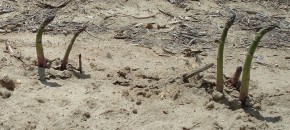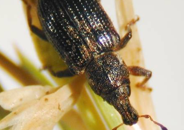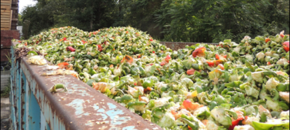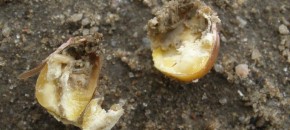All NJ licensed pesticide applicators, as well as dealers, who store pesticides are required by law to send a copy of their storage inventories with an explanatory cover letter to the local fire company by May 1st each year.
Continue reading...Spear Damage in Asparagus

Spear damage in asparagus can be caused by diseases such as Phytophthora spear and crown rot and purple spot. However, other environmental factors during the spring can damage spears as they emerge from the soil. Wind – Periods of heavy winds during emergence will cause spears to bend. Winds can cause one side of the […]
Continue reading...Controlling Spring Diseases in Asparagus
Asparagus season is just around the corner and now is a good time to review important diseases. With the long, wet spring we’ve encountered this year many fields have been extremely wet for long periods of time. These types of soil conditions are ideal for Phytophthora and Pythium development. To help reduce potential losses, especially […]
Continue reading...ABW Part 1: Managing Insecticide Susceptible Populations

With the ongoing ‘heat wave’ forsythia should be in full bloom and overwintered adult annual bluegrass weevil (ABW) should have started their spring migration soon. But no reason to panic. Adult ABW are best controlled when forsythias are half gold:half green, when most of them are on the short-mown turf but have not started laying […]
Continue reading...Pepper Weevil Situation for 2014

Sign up for pepper weevil monitoring with the Rutgers IPM Team. Our base fee is $450 per farm and $100 per trap deployed. If we are already doing insect trapping or field scouting at a farm, then the only additional cost is for the weevil pheromone traps. We suggest that one trap be set in […]
Continue reading...Sweet Corn Insects: Underground & Unseen

Early season sweet corn damage from seedling insects is easily underestimated since it happens underground. By the time spotty, inconsistent stands or dying seedlings are observed, it is too late for control. Over the years, I’ve gathered tips especially applicable to the cold, wet spring we are experiencing: The cold weather is keeping soil temperature […]
Continue reading...